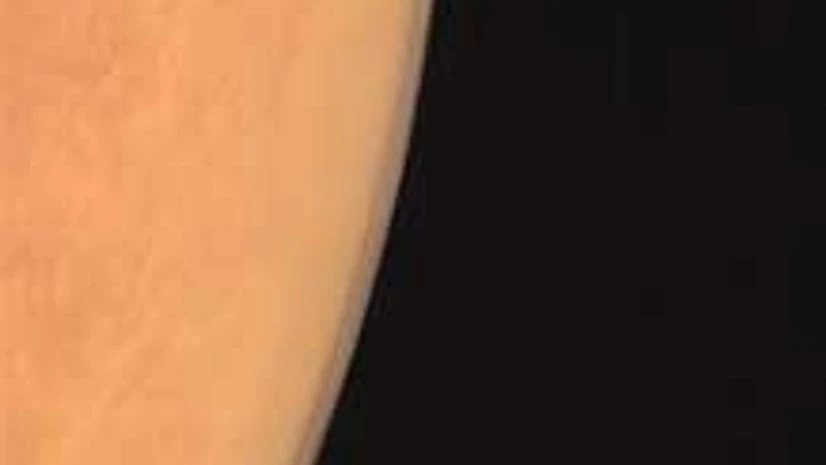The Indian Space Research Organisation (Isro) on Thursday released the first picture of Mars taken by its Mars Orbiter Mission (MOM) from a height of 7,300 km, with 376 m spatial resolution.
An Isro team, led by Chairman K Radhakrishnan, handed over the first picture to Prime Minister Narendra Modi in New Delhi.
Minutes after receiving the picture, Modi tweeted, “Yes, I agree @MarsOrbiter, the view is indeed nice
Also Read
“up there!” He was responding to Isro's posting of the first photo on Twitter, with the caption “The view is nice up here”.
Isro officials said a camera, one of the five instruments in the Mangalyaan spacecraft, had taken and sent dozens of pictures and that everything was working well. “The Mars Colour Camera (MCC) on board the spacecraft started working soon after Orbiter stabilised in the elliptical orbit of Mars and has taken a dozen quality pictures of the planet’s surface and its surroundings. The camera will also take images of the red planet’s two moons and beam them to our deep space network centre,” V Koteswara Rao, senior scientist at Isro told a news agency.
The MCC acquires colour images of Mars. The payload weighs about 1.4 kg. MCC covers a spectral range of 400 to 700 nanometres — the visible spectrum. The camera includes a multi-element lens assembly and a 2,000 by 2,000 pixel array detector with RGB Bayer Filter.
At periapsis (nearest point to Mars), MCC provides images with a 50 by 50 km frame size and a resolution of 25 m a pixel. At apoapsis (farthest point from Mars), the camera provides a wide field of view of 8,000 by 8,000 km. Imagery provided by MCC is used to study Martian surface topography.
The MOM is now circling Mars in an elliptical orbit, with its periapsis at 421.7 km and apoapsis at 76,993.6 km. In the coming days, the spacecraft would be tested in the orbit, and systematic observation of the planet using its five scientific instruments would begin, said Isro.
Launched on November 5, 2013, from Isro's Satish Dhawan Space Centre, Sriharikota, the spacecraft has travelled around 666 million km to reach Mars.

)
